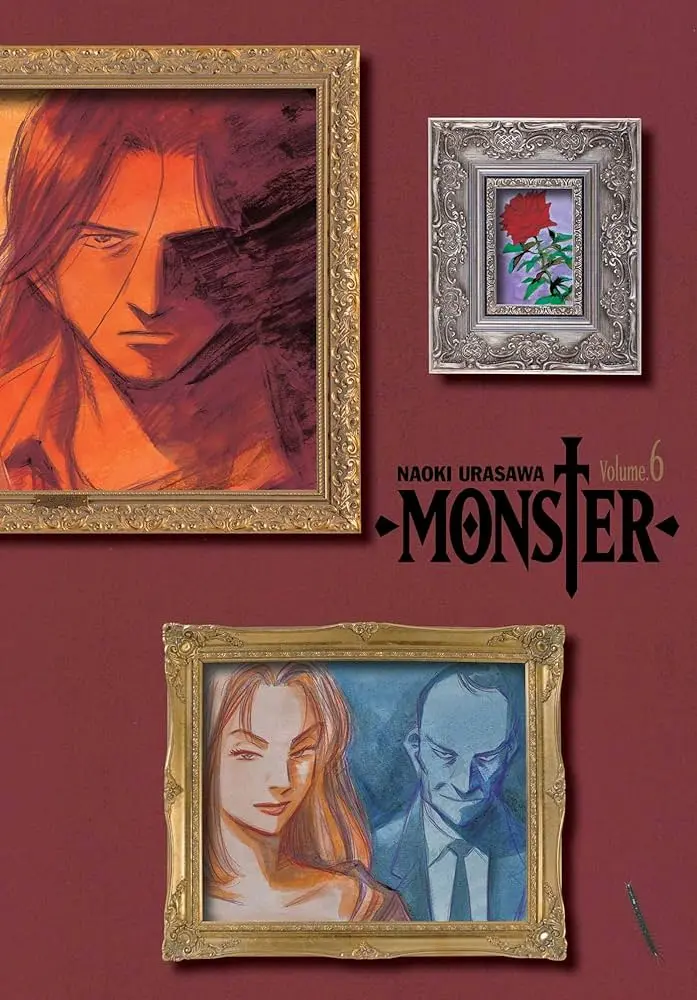Monster: A Journey Through Naoki Urasawa’s Masterpiece
If you haven’t heard Monster by Naoki Urasawa, you are missing out! This manga, published between 1994 and 2001, is like nothing else out there. It’s got this super intense plot, full of twists and turns, that keeps you hooked from start to finish. It’s not your usual run-of-the-mill story; it’s deep, dark, and downright thrilling.
The story starts with this brilliant neurosurgeon, Dr. Kenzo Tenma, who’s living his best life in Germany. He’s got a great job at Eisler Memorial Hospital, a beautiful fiancée named Eva, and everything seems perfect. But then, everything changes one night when two patients come into the hospital – a young boy with a gunshot wound to the head and another person in a state of shock. Dr. Tenma decides to save the boy’s life over a more politically significant patient who came in later. This decision sets off a chain of events that completely ruins Tenma’s life.
The hospital’s director, Dr. Heinemann, isn’t happy about Tenma’s choice. Tenma faces severe consequences, and his life starts to unravel. But that’s just the beginning. The boy he saved grows up to be something far more terrifying than Tenma could ever have imagined. As the years go by, Tenma finds himself tangled in a web of murder, mystery, and psychological horror. He ends up on a journey across Europe, trying to uncover the truth and stop a monster he feels responsible for creating.
Do you want to know what makes Monster such a gripping read? It’s Urasawa. His storytelling is top-notch. He masterfully weaves together multiple storylines, creating a narrative that’s both complex and compelling. The characters are well-developed and multifaceted, each with their own backstories and motivations. Dr. Tenma is a particularly fascinating protagonist. He’s a man of principle, driven by a strong sense of justice, yet haunted by the consequences of his actions.
Urasawa doesn’t just focus on Tenma, though. The manga is filled with a diverse cast of characters, each contributing to the overarching plot in meaningful ways. There’s Inspector Lunge, an obsessive detective who will stop at nothing to catch his target. Then there are other key figures whose paths cross with Tenma’s in unexpected and often shocking ways. Each character adds a layer of depth to the story, building it up and making it more intricate and engaging.
The pacing of Monster is another highlight. Urasawa knows how to keep readers on the edge of their seats, with cliffhangers at the end of many chapters that make it nearly impossible to put the manga down. The tension builds steadily, with moments of high drama interspersed with quieter, more introspective scenes. This balance keeps the story from becoming overwhelming while maintaining a constant sense of suspense.
The manga is full of ethical dilemmas and symbolism. For example, Tenma’s decision to prioritize saving a life over his career ambitions sets the stage for a broader examination of good versus evil, justice versus vengeance, and the nature of true monstrosity. The manga goes into these themes with a level of nuance that’s rare in the genre, prompting readers to question their own beliefs and values.
Visually, Monster is equally impressive. Urasawa’s artwork is detailed and expressive, capturing the emotional intensity of the story. His use of shadows and light creates a moody, atmospheric feel that perfectly complements the dark themes of the manga. The settings are meticulously rendered, from the sterile halls of the hospital to the bustling streets of European cities, adding a layer of realism to the narrative.
What really sets Monster apart, though, is its psychological depth. The manga really gets into the minds of its characters, exploring their fears, motivations, and inner demons. This psychological complexity adds a layer of realism to the story, making it more than just a simple thriller. It’s a study of human nature, examining how far people will go to achieve their goals and what they’re willing to sacrifice along the way.
Another thing that makes Monster stand out is its lack of easy answers. Urasawa doesn’t shy away from moral ambiguity, leaving readers to wrestle with the same difficult questions as the characters. This refusal to provide clear-cut resolutions makes the story more compelling and thought-provoking, encouraging readers to think deeply about the issues it raises.
I don’t want to spoil more of it, just know that in the manga community Monster is often praised for its intricate plot, well-developed characters, and psychological depth. These elements make it really stand out, appealing to fans of both mystery and psychological thrillers. Trust me, it’s a manga that stays with you long after you’ve turned the last page, leaving you pondering its themes and characters.
If you’re a fan of thrillers, psychological dramas, or just great storytelling, I would say Monster is a must-read. It defies easy categorization, blending elements of mystery, horror, and drama into a cohesive and compelling whole. Whether you’re new to manga or a longtime fan, Monster is a series that deserves a place on your reading list.
I would say Monster is a masterful work of storytelling, combining a gripping plot with deep psychological insight and moral complexity. Urasawa’s skillful narrative and detailed artwork create a rich, immersive experience that keeps readers hooked from start to finish. It’s a manga that challenges, entertains, and provokes thought, making it a standout in the genre. So, if you haven’t read Monster yet, do yourself a favor and pick it up. You won’t be disappointed.
Subscribe to our newsletter and get a free novel each month!



